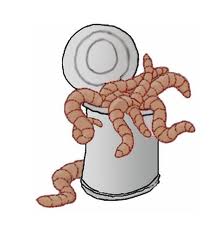Let’s start by doing a bit of reading. Here is a story about a girl. Read the story and answer this question: What is she thinking about?
A country girl was walking along the snerd with a roggle of milk on her head. She began saying to herself, ‘The money I’ll get for this milk will allow me to increase my trund of eggs to three hundred. These eggs will produce the same number of chickens, and I’ll be able to sell them for a large wunk of money. Before long, I’ll have enough money to live a rich and fallentious life. All the young men will want to marry me. But I will refuse them all with a ribble of the head – like this…’
And as she ribbled her dead, the roggle fell to the ground and all the milk ran in a white stream along the snerd, carrying her plans with it.
Answer: She’s thinking about her future – about how she’s going to get rich.
 Now the interesting thing is that by answering the question, you showed that you had got the ‘gist’ – or global meaning – of the text. However, I know that you didn’t understand every single word in the story. That’s because some of them are invented words. (Phew – you were beginning to think that you needed to brush up your English!) So one thing to notice is that when we say to our students: ‘Read it quickly, don’t worry if there are some words you don’t know, just carry on. Don’t stop!’, this is actually completely possible and a useful reading strategy.
Now the interesting thing is that by answering the question, you showed that you had got the ‘gist’ – or global meaning – of the text. However, I know that you didn’t understand every single word in the story. That’s because some of them are invented words. (Phew – you were beginning to think that you needed to brush up your English!) So one thing to notice is that when we say to our students: ‘Read it quickly, don’t worry if there are some words you don’t know, just carry on. Don’t stop!’, this is actually completely possible and a useful reading strategy.
But now let’s read the text again, this time stopping each time we come to a word we don’t know (i.e. the invented ones). Just because we don’t know them, does that mean that we don’t know what they mean?
A country girl was walking along a snerd with a roggle of milk on her head..
So what’s a ‘snerd’? Well, we can we walk along it, so maybe it’s a sort of road, path, or river.
And a ‘roggle’. Probably some sort of container – and you can put it on your head, so it must be quite big, otherwise it’d fall off.
So we can try and work out what the words might mean, using our knowledge of the world, and the surrounding text.
Coursebooks often try and do this in exercises using synonyms or paraphrases – such as the following:
1) Find a word in the text which means: stock / sum / luxurious / shake
2) A roggle is: a) a glass b) a large container c) a bottle
Sometimes teachers think that these exercises are there to increase our students’ vocabulary. It’s true that this might be a useful by-product; however, the main aim of these exercises is a reading sub-skill: guessing the meaning of unknown words from context. And this means that we need to manage them so we achieve this aim: encouraging students (even if they think they know what the word means) to go back to the text and examine what comes before and after the word, make hypotheses about what they mean and find evidence to back them up.
Once we’ve done this a few times, students won’t need such an organised approach. We can gradually withdraw our support and get them doing more of the work themselves. So when they find a new word in a reading text, we can encourage them to reflect using these questions:
Do you know what this word means? Yes – 100% / 70% / 50% / 10%
Does it occur more than once in the text?
How important is it to know what it means?
For example, ‘snerd’ occurs twice in the story. The second time, we read that ‘the milk ran in a white stream along the snerd’ and this tells us that it can’t be a sort of river, but maybe we were right when we thought it was a type of road of path. For the moment, that’s enough to know about it; it doesn’t seem to play a key role in the story, so for the moment we can carry on reading.
Guessing meaning of unknown words from context is clearly going to be a very useful reading sub-skill for our exam students. For example, in all three parts of the First Reading paper, there are inevitably going to be some words which are new. And what’s more for part 1, the handbook says (page 8) that ‘candidates may also be asked to deduce the meaning of a word or phrase’.
So any work you to do help students develop this sub-skill will be time well spent.
Have a fallentious June!
 PS Don’t use the text about the roggling girl with your students – the use of invented words could open a can of worms! Use an authentic or exam text – it will contain quite enough tricky words to keep them busy.
PS Don’t use the text about the roggling girl with your students – the use of invented words could open a can of worms! Use an authentic or exam text – it will contain quite enough tricky words to keep them busy.
PPS I didn’t write the roggling text – I found it on an old photocopy. If you know who did – let me know!
